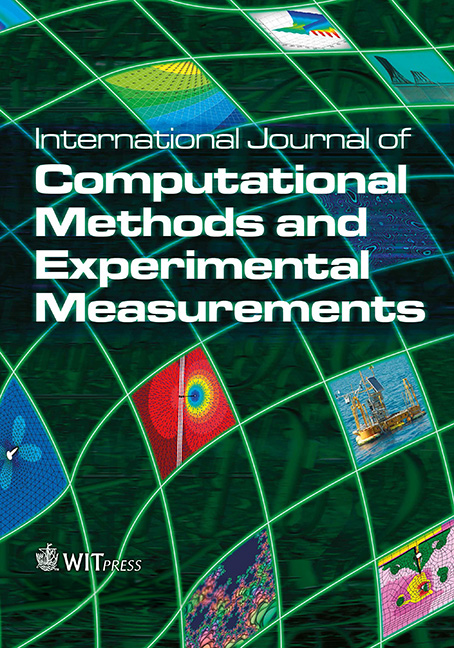NUMERICAL STUDY OF THE SEPARATION EFFICIENCY AND HEAT EXCHANGE PERFORMANCE IN A COMPLEX GAS–SOLID SEPARATOR
Price
Free (open access)
Volume
Volume 4 (2016), Issue 2
Pages
10
Page Range
142 - 152
Paper DOI
10.2495/CMEM-V4-N2-142-152
Copyright
WIT Press
Author(s)
FRANCESCO MARIANI, FRANCESCO RISI & CLAUDIO POGGIANI
Abstract
This work presents a study on a gas–solid cyclone separator used in a complex cement production plant. The main objective of the study is based on the performance evaluation and optimization of the cyclone separator in terms of particle separation and heat transfer efficiencies, while keeping pressure losses under control. The thermal interaction is between two gas–solid mixtures, one at 850°C and the other at 600°C, respectively. The solid phase consists mostly of calcium carbonate subsequently intended to the so-called baking process for the production of clinker and ultimately cement. A first model has been setup using experimental data as boundary conditions to assess the physical model behavior and the CFD solver parameters. After that, five additional models with different geometries have been analyzed to evaluate the influence of the vortex finder (vf) length on the separation efficiency and on the heat exchange performance. By increasing the length of the vf, the results show a global improvement in the separation efficiency of up to 5% if compared to the geometry without the vf. Further, the increase in the vf length determines a monotonic decrease of temperature at the exit but a monotonic increase of pressure losses. In the second part of this work, using one of the previous models with vf, a study of the influence of the particle diameter on the separation efficiency has been performed. The increase of particle diameter causes an increase of the separation and thermal exchange performance, decreasing at the same time the pressure drop. The numerical approach for all the cases is based on implicit unsteady simulations using the Eulerian Multiphase model.
Keywords
computational fluid dynamics, cyclone, Eulerian multiphase, gas-solid heat exchange, geometrical optimization




